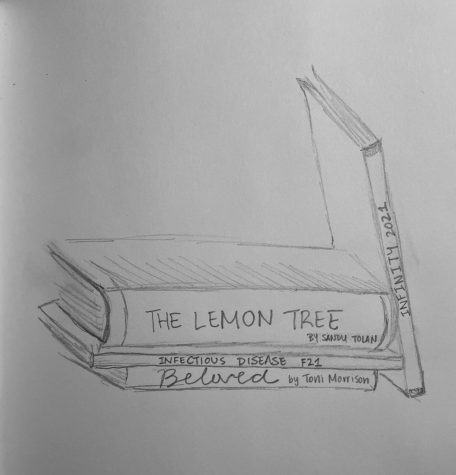Did you forget how hard Urban was: students, teachers struggle with speedy Fall term.

As students returned to fully in-person school, Urban classes have gone back to the speed of a regular Fall term. This adjustment has been coupled with a severe learning gap that students all across the country have had to face. In battling this learning gap, students and teachers alike reflect on the way that the difficulty of courses influences the Urban community.
As a college preparatory school, Urban provides a nuanced and challenging curriculum. In the face of the COVID-19 pandemic, it became apparent that a curriculum which prioritized depth over breadth could no longer function in the same way that it had before the pandemic. From a lack of connection between students and teachers as well as a drastic change in the weight of course loads, online learning brought a plethora of challenges that teachers and students tried to face head-on. Sofie Van Natta ‘22 said, “I think that there just were a lot of classes that didn’t translate to online very well.”
Urban’s “Mission & Core Values” state that, “Learning is an active, joyful process of discovery where students are challenged to ask essential questions, solve problems in disciplined and creative ways, and construct substantive understandings under the guidance of passionate and inspiring teachers.” With a curriculum filled with Urban Advanced Studies (UAS) classes, students are pushed to learn through challenging themselves.
Now that students have been immersed in in-person learning, teachers have had to find ways to make up for pandemic-induced learning gaps. In regards to Urban classes during the pandemic, Mary Murphy, a science teacher at Urban said, “Everything was reduced. And I think teachers in general are trying so hard to help kids get acclimated again, but it has been a bumpy Fall [term].”
The level of challenge that Urban presents its students can become overwhelming. “I really like challenging myself. But when it gets to a certain point of overwhelming I’ve had to shut down,” said Van Natta. Van Natta has found that finding balance within the bounds of her own learning has been a long process. “I’ve learned to balance that out in my schedule by taking something easy like an art that I enjoy, or just an easy English class that I enjoy.”
Beyond just finding balance in her own learning style, Van Natta points out that Urban’s own class structure plays a role in the amount of stress students experience. “I think that Urban is challenging in some ways that are really productive and in some ways that I think are kind of unnecessary,” Van Natta said. “I think that the unconventional structure of some classes connected with really subjective grading is something I find hard to balance.” Although teachers encourage students to make their learning their own, Van Natta finds herself still having to adapt to each individual teacher and their grading styles. “There’s no uniform way to go about any class, which is why super challenging classes are really hard because you can’t just build the strategy for something and carry it on to the next class regardless of the teacher.”
“I think it’s also important that sometimes it’s not just the workload that’s the stretch,” said English teacher Courtney Rein. “Sometimes it’s the content that’s the stretch. And sometimes it’s the perspective [that] is the stretch.” Rein referenced the difference between taking an English course like Nigerian Literature that looks at challenging aspects of identity versus taking an English class with a heavy workload like Faulkner. “What’s tricky is how do we signal to students: this is where the stretch is going to be. This is where the growth might be.” Rein said. “It’s easy to say this course is a lot of reading. It’s harder to say, this course is going to make you rethink your own identity.”
Katherine Klein ‘23 actually finds this aspect of English literature classes to be rather impactful. “In English, everything, literally everything, is always connected back to ourselves and our lives and our world. Which seems very applicable,” said Klein. “It also just makes everything so much more fun and interesting and makes you want to learn.”
Even when classes are interesting, students still find trouble balancing passion with pressure. “It is worth it in [that] I understand more about the immune system in general versus what I used to know,” said Siella Brunello ‘23 in reference to Infectious Disease, a UAS biology class. “But only if you have a high tolerance for stress.”
Although teachers are sympathetic to student’s concerns, they also know that the process of learning requires challenges. “How can we offer challenging classes that are going to push you and they’re going to make you think and make you be off balance a little bit?” said Murphy. “I hope we don’t get to a place where kids stop signing up for things because they have a reputation of being impossible. I just don’t think that’s true of any class here.”











